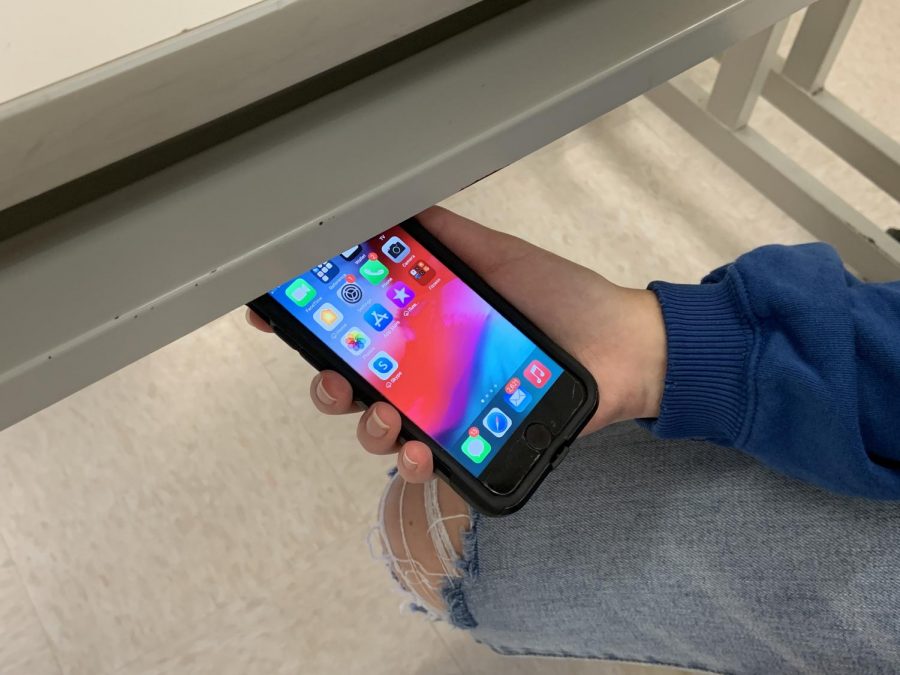Pandemic changes previous phone policy
Mountaineers returned to school in September to discover the administration’s newfound acceptance of phone usage during school hours.
“We have to learn to adapt to change,” said assistant principal Vikki DeSimone. “As a school, our job is to teach students how to manage their phone usage without disrupting their daily lives.”
Assistant principal Andrew Costa agreed.
“The new rules allow students to have the chance to use their devices responsibly while also giving them more freedom,” said Costa.
The previous phone usage rules – established nearly 15 years ago – reflected a time when technology played a lesser role in a student’s academic life. But that situation has changed.
Some classes allow students to use their phones as a tool in the classroom.
“In class, we are able to use phones for games like Kahoot and Quizlet,” said senior Josh Lancaster.
Other classes use the technology to help students focus.
“Teachers let students listen to music during independent work,” said junior Ali Chouinard.
According to educators, because students learn in different ways, technology can help them take advantage of different learning techniques.
“Phones can be used to benefit students who have different learning styles, like visual learners,” said Costa.
This increased digital presence in academics, along with the pandemic, led to the policy revisions concerning lunch and passing time.
“During COVID, everyone was very dependent on technology. We realized we could work together to be less confrontational and more understanding with phone use between classes and at lunch,” said DeSimone.
Junior Mckayla Brown said she likes the changes.
“Using your phone gives you something to do during lunch,” said Brown.
Sophomore Meghan Montague said she makes practical use of her phone.
“I use my phone to help find people at lunch,” said Montague.
According to administrators, even with the ability to be online during lunch, many students still choose to have physical interactions with other students.
“The phone usage at lunch does not interfere with student interactions. Students seem to enjoy being able to talk face to face,” said DeSimone.
But several students admitted that there have been some issues with the new rules.
“Some people walk slower in the hallways when they are on their phones and it makes it harder to get to class,” said Chouinard.
Other students have observed that the new rules have created distractions in class.
“Some students don’t pay attention in class because they are on their phones,” said sophomore Sophia Mellen.
Despite these challenges, the administration noted that discipline concerning phones has decreased.
“Students and teachers no longer have negative interactions over an infraction of using a phone,” said Costa.
According to administrators, the Regional has grown to embrace technology.
“Electronic devices are a part of everyday life,’ said DeSimone. “At WRHS we are adapting to the change and becoming a community that embraces responsible use of technology including phones.”
Amelia Darmanin is currently a freshman from Princeton. She loves to read and write, and spends most of her free time with her nose in a book. Amelia joined...

Allison is a senior and has been working with the Echo for four years. She enjoys reading, listening to Taylor Swift, and editing for the Echo.








